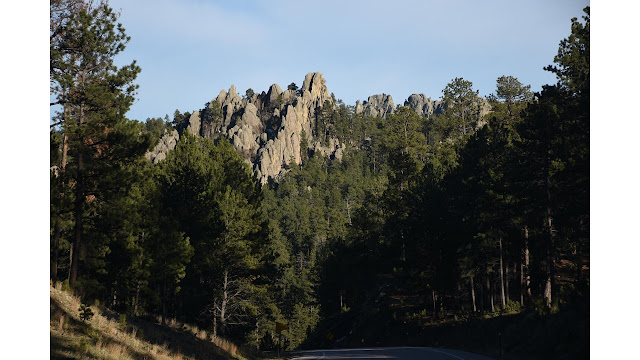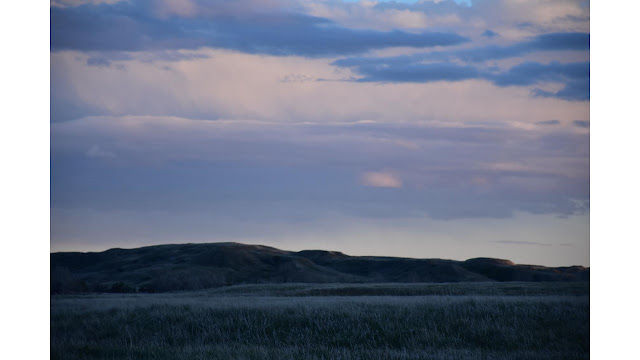Almost two years ago, we came up with the plan to make this journey around the country, documenting environmental issues as we went. How'd we do? I guess you are the judge of that. Honestly, like with all trips, we really didn't know how it would go until we went.
Here are the cold,
impersonal statistics: On our trip, my wife Karin and I traveled 15,426 miles through 28
states and two provinces of Canada, touching the four corners of the United States. I can't count how many different
sites we visited or what all we just saw from the truck window, but we wrote
some 95 blog entries, most of them quite in-depth. As I write this, we've had about 6,600 blog page views so far, from around 16 countries.
But statistics don't
really tell this story. If you've been reading the blog, you'll know I've
spent a lot of time trying to see the elephant. Maybe you don't know what
that means. I first heard of the elephant in James Michener's book Centennial. It's a term that originated in the 1800's, especially in
regards to pioneers' westward expansion to goldmines, California, and Oregon.
Wikipedia sums it up nicely: "The phrase seeing the elephant is
an Americanism which refers to gaining
experience of the world at a significant cost."
I
certainly can't claim that my cost - riding on a comfortable truck seat while
towing our Airstream camper and eating my wife's delicious cooking - compares
to the experience many others that went before me have had. But, it was a
very, very, very long trip with hundreds of hours behind the wheel. There was a
lot to see, a lot to experience, and a lot to think about - from both inside
and out.
In
his book Travels With Charley, John Steinbeck had an extra chapter that didn't
get published with the book. In it, he summarized his experience traveling around the country with his poodle, Charley:
"My travels with Charley were a simple, almost humble undertaking.
They caused no flurry and piled up a limited heap of information.
Thinking back, I don't know what, if anything, I learned."
Steinbeck was being satirical of course, but its hard to look deep
enough inside to know the relevance of the "experience of the
world."
For
me, this trip was an affirmation that America is an amazing place.
It's incredibly huge, and incredibly varied in the environment - biologically and geographically - but also
in human culture and condition. I think candidates considering
national political office would do well to make a similar trip.
We saw
examples of incredible thoughtfulness to protect, preserve, and restore
habitats and species; and thoughtlessness of greedy development, resource extraction,
and agriculture that make these efforts necessary. We saw endangered
species and expanding invasive species. We saw the positive impact of well-thought-out environmental management.
We again confirmed our conviction that the preservation of open spaces and public access to those open spaces is incredibly important and vital. If they are not protected, they will be closed off, developed, and lost forever. Please support your state and national parks and organizations such as The Nature Conservancy and The Trustees of Reservation that work towards preserving these places.
But, the most important thing we saw was that
humans can fix the problems they cause - if they have the will.
I
hope this blog has helped a little bit to further the creative will to protect,
repair, and nurture the environment.
**************************************************************************************************
Like
all big undertakings, this amazing journey was a team effort. I want to
acknowledge some of the people that helped make it possible:
- Dr.
Liz Preston, Interim President and Dr. Marsha Marotta, Interim Vice
President at Westfield State University, for approving this sabbatical adventure.
- Dr.
John McDonald, for taking over my chair duties of the Environmental
Science Department
- Mrs.
Mary Masse, our department's incomparable administrative assistant
- My
colleagues Dr.s Tim Parshall, Emily Cole, Bob Thompson, and Carsten Braun, for covering classes, advising, and the myriad of other duties I walked away from during this
trip
- Eli Jameson, for keeping the home front
- Jules Sobon, for minding the plants and the department
- Kit Woof, for making one cat incredibly happy
- Our kids Erik and Kristine, who took time out of their busy lives to join in on some of the adventure
- The taxpayers of Massachusetts, who keep
paying my salary
And mostly, my
phenomenal wife, life partner, and soulmate Karin, who was with me every step
of the way.
Thanks.
Michael Vorwerk, Huntington, May 2017
PS Here's the elephant:









































































